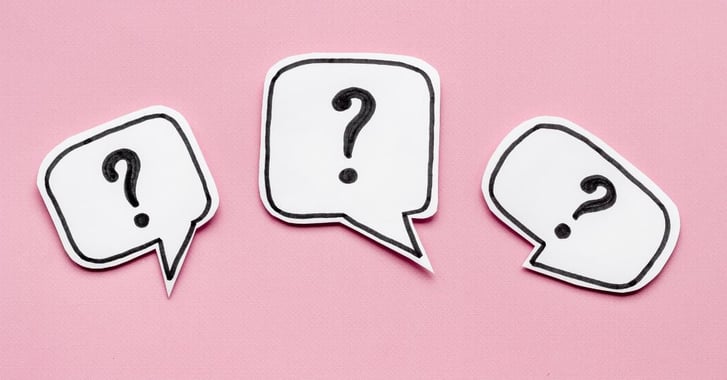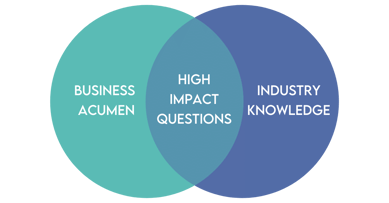
Asking High Impact Questions: Interview Tips
By: Natalie Rogers

“We run this company on questions, not answers.”
Eric Schmidt, CEO of Google
Well-crafted and insightful questions are the best way to gain credibility with your audience and sell yourself, without actually selling. So why do so few people utilise them?
High impact questions
Children learn by asking questions. Students learn by asking questions. New recruits learn by asking questions. Innovators understand needs by asking questions.
Brilliant thinkers never stop asking questions because they know that this is the best way to learn and gain deeper insights. Beyond this, you will also impress people with your knowledge and credibility, but only if you ask the right questions.
A lot of people underestimate the power of an effective, high-impact question. Tapping into this tool can help you in many situations such as interviewing, networking and business meetings. In the context of an interview, if you ask just one, well thought out, high impact question, you will be sure to leave an impression on the interviewer.
Elements of a high impact question

A high impact question requires a demonstration of business/commercial acumen (company knowledge) and industry knowledge, combined with your ability to ask a professional, challenging question that establishes your expertise.
Business/commercial acumen
When asking your interviewer a question, it is imperative to show them you have a thorough understanding of their company and the way it operates. Demonstrating your knowledge of the company shows them you are genuinely interested in the role and ready to immerse yourself in it should you be successful.
Industry knowledge
Demonstrating industry knowledge will show the interviewer that you are connected to relevant news and issues in the industry and aware of macro impacts on the business and broader parameters of your potential new role. Showing a deeper understanding of how the industry impacts on your role, set against the competitive landscape demonstrates to the interviewer you are an expert in your field.
Questioning skills
The ability to demonstrate natural curiosity is one of the most important questioning skills, as it shows the interviewer you are eager to learn and ready to take on new challenges. Along with this, it is important to listen attentively to what your interviewer is saying. This allows you to respond with clear, concise questions that are relevant to the conversation and allows the interviewer to provide an informative response. Don’t be afraid to ask a challenging question (politely of course!). These are often the questions that will provoke the most interesting flow on conversation which will be sure to leave an impact.
Here are some examples of high impact questions:
I understand the nature of your industry is highly fragmented, with the four majors and then a long tail of SMEs (industry knowledge), and while you’ve got 20% market share as the leader (company knowledge), what is your organisation doing about growing that position? (Asking the challenging question)
The industry is coming down on chain of responsibility/transport safety because of widespread non-conformance/governance issues (industry knowledge); and I know that your organisation has just experienced a road fatality (company knowledge). What immediate changes have you made to ensure this doesn’t occur again? (Asking the challenging question)
Using this formula to ask questions will deliver a powerful, concise and insight-provoking question every time.
Related


Stay ahead of the EOY crunch with contracting
Even though December comes around the same time every year, somehow it still manages to hit us with...
.jpg?width=352&name=FMCG%20Sales%20-%20Blog%20(3).jpg)
FMCG Sales: 2025 Trends & Hiring Challenges
In a market defined by consolidation, and caution, FMCG Sales leaders are facing increased pressure...

 Accessibility
Accessibility